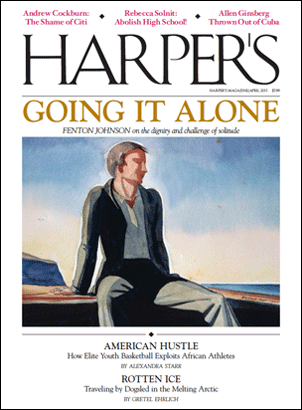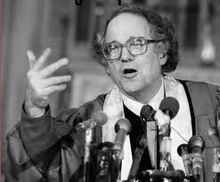[3-minute read]
SPECIAL BONUS QUOTATION BEFORE WE EVEN GET TO THE “HE SAID” AT HAND!

The main article appealed to my loner tendencies, but there was eco-writing, a call to end high schools, AND a basketball feature. A must-have, absolutely killer issue.
“All man’s miseries derive from not being able to sit in a quiet room alone.”
— Blaise Pascal
I have never subscribed to Harper’s Magazine, but it’s a wonderful read. I buy it as a gift and a comfort to myself, approximately whenever a cover story leans out from a random magazine rack and says, Buy me now. My love for this smart American publication isn’t timely or disciplined or even remotely organized; for one pathetic example, I’m just now finishing the August 2013 issue, and returning to its cover piece, a writers forum on the lumpily uncomfortable topic “Are You Sleeping?”. This was a Must-Buy because my nights have been harder work than they should be for a long time. (I’m trying to try easier.)
A year ago last spring, I was forced to kidnap (and to pay the $7.99 ransom for) the April 2015 issue of Harper’s, whose cover story was the long and deeply thoughtful article “Going It Alone: The Dignity and Challenge of Solitude”, by Fenton Johnson. (You can read the whole article here on the magazine’s archives for free.) The piece begins with the quote from Pascal, the 17th-century French polymath/genius, which Johnson follows with a more homely conundrum. He invites us to consider the average bookstore, or daytime TV lineup, or any number of therapists, clergy or Internet advisors, all counseling us on how to figure out our relationships. He compares that to the scarcity of public comment about being by ourselves:

